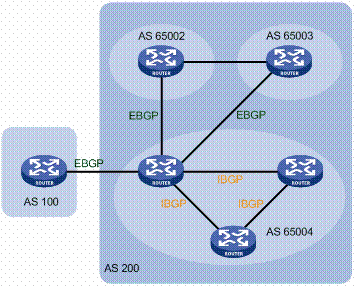BGP is the protocol that keeps Internet connected. Operators use it by announcing Address Prefixes (APs), namely IP address blocks, that they own or that they agree to serve as transit for. BGP enables ISPs to devise complex policies to control what AP announcements to accept (import policy), the route selection, and what AP to announce and to whom (export policy). In addition, BGP is also used to coarse traffic engineering for incoming traffic via the prepend mechanism. However, there are no wide-spread good tools for managing BGP and much of the complex configuration is done by home-brewed scripts or simply by manually configuring router with bare-bone terminal interface. This process generates many configuration mistakes. In this study, we examine typos that propagates in BGP announcements and can be found in many of the public databases. We classify them and quantify their presence, and surprisingly found tens of ASNs and hundreds of APs affected by typos on any given time. In addition, we suggest a simple algorithm that can detect (and clean) most of them with almost no false positives.
翻译:暂无翻译




